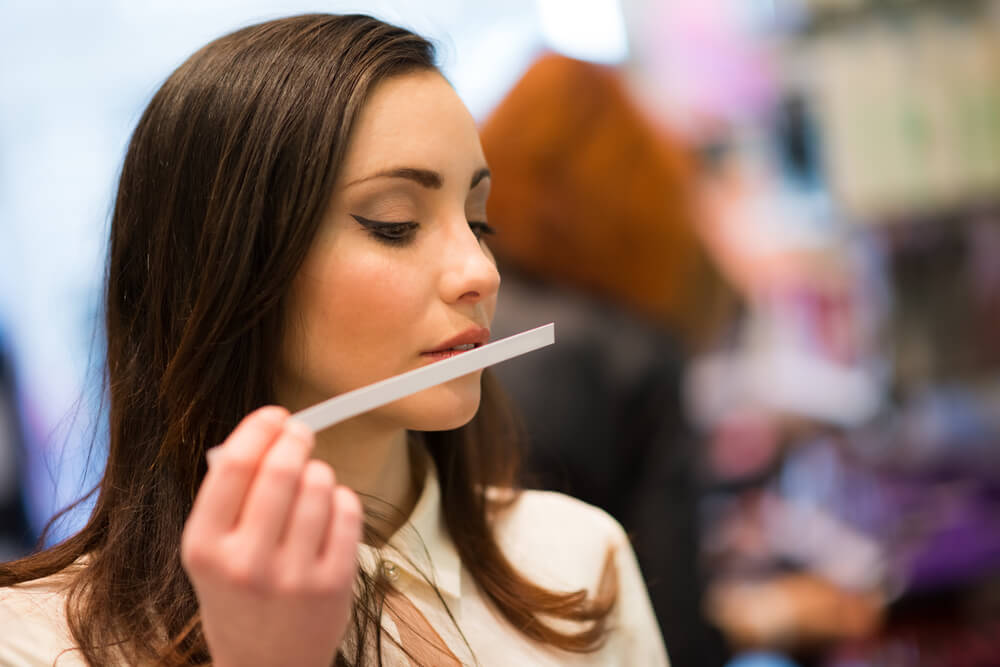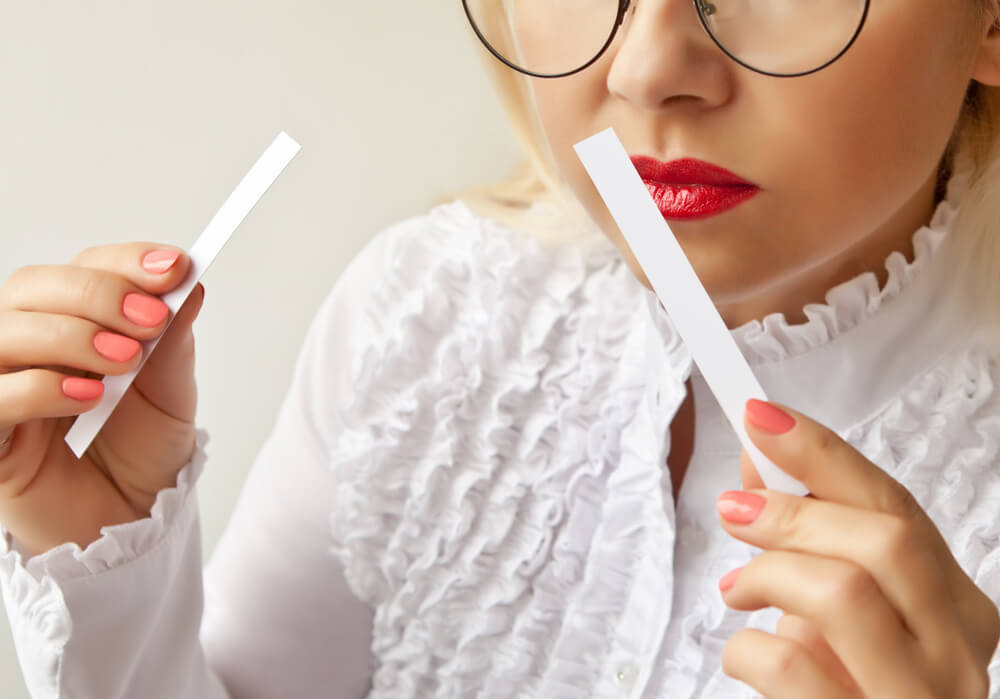Identifying Drugs by Smell: What Do Different Drugs Smell Like?

How to Recognize Different Drugs by Smell
Do you suspect that a loved one has a drug abuse problem? Drug abuse or drug addiction aren’t always visible to the eyes, especially if your loved one is trying to keep their habit hidden. However, you might be able to smell some drugs. The smell might linger in their home or your home, and it might remain on their clothing or hair. Some drugs can be sensed in a user’s sweat. Some drugs produce unmistakable odors that indicate that someone has been using them or close to where they’ve been used.
Uncovering the signs of drug abuse may help you learn if a relative or friend is abusing drugs in your home and if they’ve developed an addiction to illegal smells. Prying into a loved one’s drug use isn’t pleasant, but it may be the key to successfully encouraging them to enroll in a drug addiction treatment program.
Different drugs can produce different smells. Not all drugs smell, and you can’t expect to always smell drugs to know for sure if someone you love is using them. However, many commonly abused drugs are associated with odors. PCP smells like a permanent marker, according to some. A meth lab may smell like ether or ammonia; however, some people have compared these odors to cat urine. Others report that meth smells like rotten eggs or burnt plastic. According to some, crack smells like burnt plastic when cooked too.
If you’re concerned that someone you love has a drug abuse problem, your sense of smell may help you identify signs of drug abuse along with other signs and symptoms that may be present. It’s not uncommon for people with drug addiction to deny they have one. As a parent, family member, or friend, it’s essential to address a suspected drug abuse problem. Ignoring drugs and alcohol addiction can lead to disastrous outcomes.
What Does Marijuana Smell Like?
Marijuana has a musky or skunky odor when smoked. Although marijuana is now legal in many states, people can become addicted. If your loved one routinely smells like marijuana, they may use it heavily, which is cause for concern. Marijuana’s distinctive odor is hard to mask. Someone using it might attempt to conceal the marijuana smell with air freshening spray or incense, but the telltale odor may persist. Although marijuana may be legal in your state, driving under its influence is not permitted. If your loved one is using this drug to soothe symptoms of mental health issues, they should seek a medical evaluation and professional treatment designed for proper mental health care. If addicted to pot, your loved one may need dual diagnosis treatment.

What Does Fentanyl Smell Like?
Fentanyl is an odorless drug, which can underscore its danger to users. Many producers of illegal drugs lace them with Fentanyl to produce a more potent high. Unfortunately, Fentanyl is extremely powerful; even a slight dose increase can lead to deadly drug overdoses. Mixing Fentanyl with heroin, alcohol, or other substances can lead to a fatal cocktail. If you suspect your loved one is abusing illegal drugs, remind them of the dangers of opioids like Fentanyl. If you believe they’re addicted to Fentanyl or any other drug, you may want to stage an intervention and encourage them to enter a drug and alcohol rehab immediately. Opioids are the leading cause of drug overdoses in the U.S.
What Does Heroin Smell Like?
Heroin is not associated with a distinctive odor. Its purer forms may feature a slightly sour smell reminiscent of vinegar, but often, there is no scent marker. However, other signs may be that your loved one has developed a heroin addiction. For example, the presence of track marks on their arms is a classic sign that they are abusing powerful drugs like heroin. If you believe your loved one or friend has a heroin addiction, the sooner they enter a drug treatment program, the sooner they can safeguard their physical and mental health.
What Does Crack Cocaine Smell Like?
Crack cocaine use often involves a smell like burning plastic or a mild chemical odor. This form of free-base cocaine is highly addictive and produces a powerful but short-lived high. Until cooked, the drug does not produce an odor. If you smell a chemical odor or burnt plastic, you might suspect crack cocaine use, especially if it’s in association with other signs of this drug’s abuse that include unpredictable or strange behavior.
Other Signs a Loved One Is Abusing Drugs
Although your nose may detect substance abuse, you are likely to note other signs and symptoms if your family member or friend has developed a drug addiction. Substance use disorders are severe health conditions that can rob people of their health and life. Someone addicted to powerful drugs like opioids or crack cocaine needs rehab treatment. Knowing that a loved one has a drug addiction helps you make informed decisions about possibly driving them, allowing them to care for your children, or lending them money. It’s challenging to support someone with an addiction if they choose not to enter a treatment facility. You may want to seek family therapy for support.
Some additional signs that often indicate that someone has a drug abuse problem or addiction are:
- Strange behaviors
- Uncharacteristic lethargy/fatigue
- Secretive behavior
- Reckless decision making
- Financial/job problems
- Relationship problems
- Taking other people’s medications
- Unusual physical signs like bloodshot eyes, frequent nosebleeds, or tremors
- Presence of withdrawal symptoms
Different drugs may involve different signs. Don’t ignore these signs. If your loved one is suffering from a substance abuse disorder, they need inpatient treatment or outpatient rehab to help them manage their addiction and regain control of their life.
Drug Addiction Treatments at Novo Detox
Knowing what drugs smell like is helpful, but not the only way to detect if someone you love is struggling with a drug abuse problem. If other signs and symptoms are present, you may want to stage an intervention to compel them to seek an addiction treatment center. Novo Detox offers a full continuum of care for clients addicted to drugs and alcohol. We provide medical detox programs, residential treatment, and outpatient rehab treatments, including partial hospitalization and intensive outpatient treatment. We also offer telehealth outpatient treatment.
Our treatment programs include medically sanctioned addiction treatments like cognitive behavioral therapy, relapse prevention, and individual therapy. We also offer holistic treatments such as yoga, herbology, acupuncture, and tai chi that support the addiction recovery process. If your loved one has a dual diagnosis that involves a mental health condition like bipolar disorder or post-traumatic stress disorder, we can provide dual diagnosis treatment.
Our luxury rehab is committed to helping clients end their dependence on alcohol and drugs through the best addiction treatment practices. The treatment process may take 30 days or longer, and medical detox typically involves 5-7 days of residential inpatient care. Contact Novo Detox at (844) 834-1777 to learn more about our recovery center and wide range of treatments. We can discuss our admissions process along with insurance verification.




